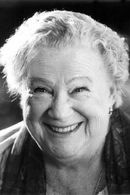Born to artistic Hungarian-Jewish parents in her native Budapest, Elisa Gallay began her musical career as a pianist at the tender age of seven. Her exceptional talents were discovered early, and by the time she was nine, she had been accepted into the prestigious Liszt Ferencz Music Academy, where she studied from 1930 to 1943.
Elisa's musical education was complemented by her studies in dance and piano at the Royal Opera House Ballet Studio and the Hungarian Royal Academy of Music. Growing up amidst the rise of fascism in 1930s Hungary, Elisa and her mother struggled valiantly to survive the horrors of their imprisonment within Budapest's "Jewish Ghetto."
Just as the Russian Army advanced in the fall of 1944, Elisa and her mother were rescued by her aunt's non-Jewish husband, who managed to secure papers signed by the Swedish envoy of Budapest, diplomat and humanitarian Raoul Wallenberg. This act of bravery saved not only Elisa and her mother but also tens of thousands of others.
Following Hungary's "liberation," Elisa built a reputation as a radio, nightclub, concert hall, and variety show celebrity under the repressive Communist regime. In 1956, Elisa and her mother barely escaped the regime and were rescued at Vienna's Austrian border.
Contacting family relatives in New York City, the two were sent visas and flown to America to begin their lives anew. Elisa found work as an accompanist at ballet classes by day and performed cabaret shows in Hungarian nightclubs and restaurants by night. She worked diligently on her English, building an unusually large repertoire of American classic standards.
In 1966, Elisa relocated to Los Angeles, where she reestablished herself as a performer. Her big break came when fellow Hungarian Zsa Zsa Gabor secured her a TV guest appearance on the popular local variety program The Woody Woodbury Show in 1967.
Elisa's TV debut was a success, and she went on to appear in various restaurants, nightclubs, and cabaret shows. She also produced four albums and eventually opened her own nightclub, Music Expresso, which was frequented by both American and Hungarian celebrities.
In the early 1990s, Elisa started appearing in atmospheric bits on TV shows such as Parker Lewis Can't Lose, Totally Hidden Video, Brooklyn Bridge, Picket Fences, Shasta McNasty, and Primetime Glick. She found her true calling in scores of ethnic parts in commercials for companies such as V-8, Pacific Bell, CVS Pharmacy, AM/PM Mini-Markets, General Electric, and others.
In her twilight years, Elisa was featured in a few films, including The Man from Elysian Fields and The Whole Ten Yards. She continued to perform well into her 80s before retiring to a Burbank senior citizen's complex.
Even in retirement, Elisa remained active, delighting her fellow residents with her singing and piano playing. She also made sporadic trips back to Hungary, where she was still cherished as a celebrity.
Elisa was diagnosed with lung cancer early in the millennium and showed remarkable resilience by surviving another ten years. She died on April 19th, 2013, under hospice care in Northridge, California, at the age of 91.













